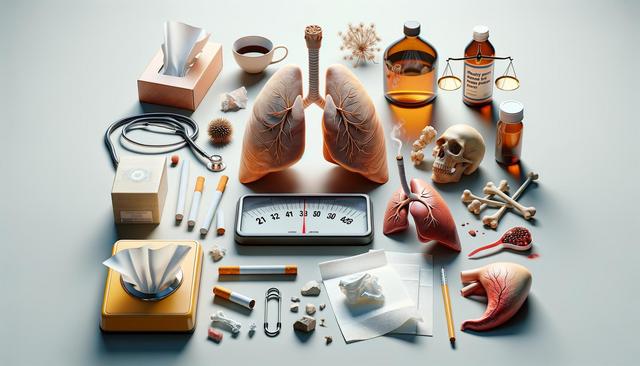1. Maintain a Balanced, Nutrient-Rich Diet
One of the most effective ways to support long-term health and reduce cancer risk is through a balanced, whole-food diet. Emphasizing fruits, vegetables, whole grains, and lean proteins can provide antioxidants, fiber, and essential nutrients that support cell health and reduce inflammation. A plant-forward eating pattern is especially helpful, as many plant-based foods contain phytochemicals—natural compounds with protective effects. To get started, consider the following:
- Eat at least five servings of fruits and vegetables daily
- Limit processed and red meats
- Choose whole grains over refined grains
- Include sources of healthy fats, such as nuts, seeds, and avocados
Limiting added sugars and highly processed snacks can also help maintain a healthy weight, which is linked to lower cancer risk. Overall, mindful nutrition is a powerful habit for cancer prevention and better overall health.
2. Stay Physically Active Consistently
Regular physical activity plays a crucial role in maintaining a healthy weight and reducing the risk of several types of cancer, including breast, colon, and endometrial cancers. Exercise helps regulate hormones, improve immune function, and reduce chronic inflammation—all factors that contribute to cancer development. Experts recommend at least 150 minutes of moderate aerobic activity per week or 75 minutes of vigorous activity, along with strength training twice a week. Simple daily actions can make a big difference:
- Take brisk 30-minute walks most days of the week
- Use stairs instead of elevators
- Incorporate stretching or yoga into your routine
- Engage in recreational activities like dancing, biking, or swimming
Incorporating movement into your day doesn’t have to be demanding. The key is consistency and finding activities you enjoy to stay motivated long-term.
3. Manage Stress and Prioritize Mental Health
Chronic stress can negatively impact the immune system, increase inflammation, and disrupt hormonal balance, all of which may contribute to cancer development over time. Prioritizing mental well-being through stress-reducing habits can support both emotional and physical health. Some helpful strategies include:
- Practicing mindfulness or meditation daily
- Engaging in hobbies or creative outlets
- Spending time in nature
- Connecting with supportive friends or family
Establishing a regular sleep schedule and setting boundaries for work-life balance are also essential aspects of stress management. By taking care of your mental health, you provide your body with the resilience it needs to support long-term wellness and reduce disease risk.
4. Avoid Tobacco and Limit Alcohol Use
Eliminating tobacco use is one of the most impactful steps a person can take to reduce cancer risk. Tobacco is linked to numerous cancers, including lung, throat, and bladder cancer. If you currently use tobacco, consider seeking support programs or professional guidance to help you quit. In addition to tobacco, alcohol consumption should also be limited. Alcohol is classified as a carcinogen and has been associated with increased risk of cancers such as liver, breast, and mouth cancer. To reduce risk:
- Avoid tobacco in all forms, including smoking and chewing
- Limit alcohol intake to one drink per day for women and two for men, or less
- Choose alcohol-free days each week to reduce overall consumption
These habits not only support cancer prevention but also contribute to improved cardiovascular and liver health over time.
5. Get Regular Screenings and Know Your Family History
Early detection plays a key role in preventing cancer or identifying it in its most treatable stages. Regular screenings, such as Pap smears, mammograms, colonoscopies, and skin checks, are essential preventive tools. Discuss with your healthcare provider which screenings are appropriate based on your age, gender, and risk factors. Additionally, understanding your family medical history can help you stay informed about potential genetic risks. Consider these steps:
- Schedule routine checkups and cancer screenings as recommended
- Keep a record of your family’s health history
- Talk to your doctor about any inherited conditions or concerns
- Consider genetic counseling if you have a strong family history of cancer
Proactive health monitoring empowers you to make informed decisions, catch any warning signs early, and adopt preventive strategies tailored to your personal risk profile.
Conclusion: Small Changes, Lasting Impact
Adopting simple, daily habits can make a meaningful difference in reducing cancer risk and promoting overall well-being. From nourishing your body with whole foods to managing stress and staying active, these lifestyle choices create a supportive foundation for long-term health. While no single habit can guarantee cancer prevention, the collective impact of these strategies can improve your quality of life and help you feel empowered in your health journey. Start with one or two changes and build gradually—your body and mind will thank you.


